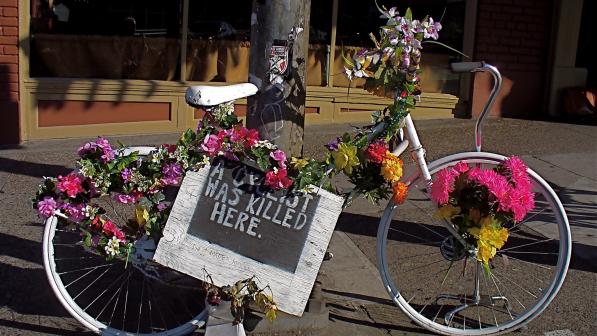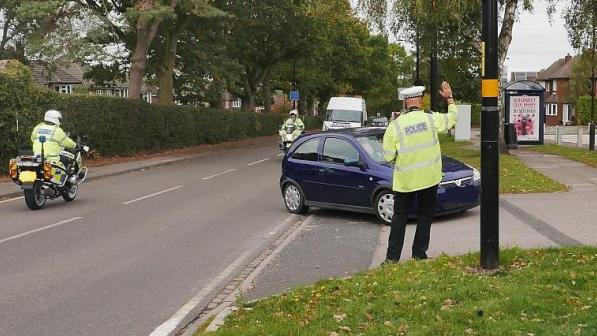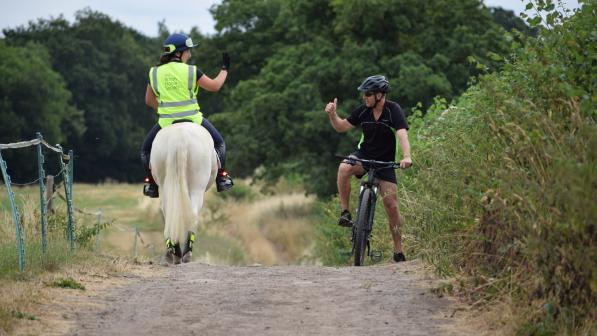Cycling UK launches campaign to end road traffic injustice

The national charity believes an increasing number of families whose loved ones have been killed or seriously injured on Britain’s roads are suffering injustices, but significant improvements could be made by addressing three key areas:
- Simplifying and improving the legal definitions of unsafe driving behaviour
- Increasing the use of driving disqualifications and closing the ‘exceptional hardship’ loophole
- Increasing the current six month maximum prison sentence for drivers who fail to stop
The campaign is being supported by Brake, the road safety charity, and RoadPeace, the national charity for road crash victims.
Duncan Dollimore, Head of Campaigns, said: “Every death or serious injury is a tragedy but too often families are also being let down by loopholes and a legal system that victims and bereaved relatives don’t think treats road crime seriously.
"Road crime is real crime, and today we’re calling on the Government to take action and carry out the full review of road traffic offences, as it promised four years ago."
Road crime is real crime, and today we’re calling on the Government to take action and carry out the full review of road traffic offences, as it promised four years ago.
Duncan Dollimore, Head of Campaigns
Two prominent cases among many others highlight the need for a review:
- In 2015, cyclist Lee Martin was killed by driver Christopher Gard who had been texting behind the wheel of his van. He had been convicted on six previous occasions of using his phone while driver but was allowed to keep his licence

- In 2014, Michael Mason died after he was hit from behind by a driver on Regent Street in London. The driver claimed she didn’t see him. After the police declined to charge her, a private prosecution was brought for causing death by careless driving, in a case that demonstrates the uncertainty in the law around what amounts to careless driving, what’s dangerous, and what’s treated merely as a mistake.

Earlier this month, the Department for Transport announced it was opening a consultation into new offences of causing death by careless or serious cycling.
It follows the case of cyclist Charlie Alliston who was jailed for 18 months in September 2017 for knocking over and killing 44-year-old Kim Briggs as he cycled through east London on a bike with no front brakes.
Alliston, 20, was cleared of manslaughter but found guilty of causing bodily harm by "wanton and furious driving", a crime under the 1861 Offences Against the Person Act. He was sentenced to eighteen months in prison.
But Cycling UK believes the review of cycling legislation is merely tinkering around the edges of road safety and that the Government should use the opportunity to fulfil its commitment to a wider review, promised in 2014.
Mr Dollimore said: “Since the Government made that promise, it’s estimated that over 1,800 pedestrians have died on Britain’s roads.
“In 2016, the last full year we have full casualty figures for, 445 pedestrians died in collisions with motor vehicles, and three in collisions with cyclists, but the Government plan to review cycling offences and ignore the main cause of road danger.
“This is a serious issue being overlooked by the Government, especially when you consider that in the last ten years 99.4% of all pedestrian deaths involved a motor vehicle.
“It’s time the Government took this problem seriously and ended the injustice suffered by far too many families who are being let down by the system.”
Cycling UK has released a video to coincide with the launch of its campaign, and is urging as many people as possible to take action by following its campaign action.
Notes to editors
Notes to Editors:
- Cycling UK, the national cycling charity, inspires and helps people to cycle and keep cycling, whatever kind of cycling they do or would like to do. Over a century’s experience tells us that cycling is more than useful transport; it makes you feel good, gives you a sense of freedom and creates a better environment for everyone. www.cyclinguk.org
- Contact the press office at Brake, the road safety charity, on news@brake.org.uk or the press office at RoadPeace, the national charity for road crash victims at info@roadpeace.org
- For more information on Cycling UK’s campaigning and their executive summary see: https://www.cyclinguk.org/campaign/road-justice
Press contact information
For more information contact the national Cycling UK Press Office on 01483 238 315, 07786 320 713 or email publicity@cyclinguk.org





